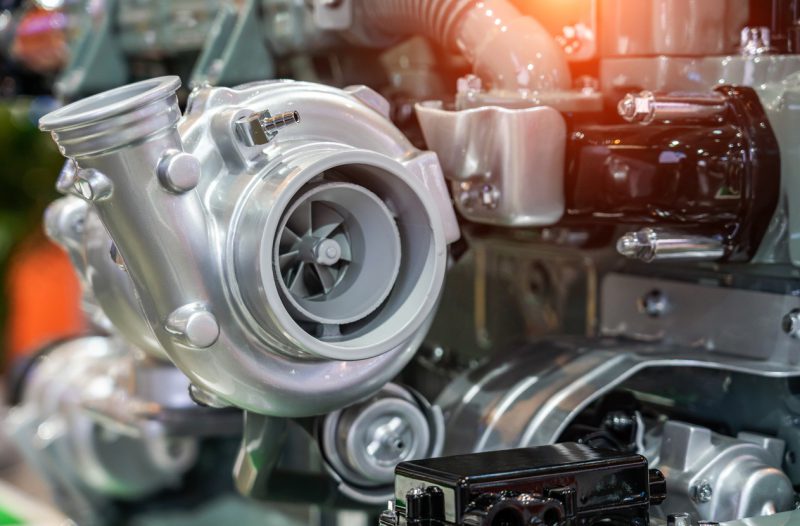
Ever more cars use turbocharging on their engines. And that makes turbo trouble a problem some drivers might face for the first time. A turbo is a way of getting a smaller, more fuel-efficient engine to match the power of a larger capacity unit.
To work their magic, turbos have to work at high speeds, high temperatures and high pressures so they can be susceptible to failures. But if a turbo packs up, the engine won’t necessarily stop. Here I look at what a turbo is and the kinds of problems your turbo car might experience.
What is a turbo engine?
A turbocharged engine is sometimes called forced induction because of the way it works. When an engine burns fuel, it creates gases. These usually escape into the atmosphere through the exhaust pipe. In a turbocharged car, before exiting, these gases flow to the turbocharger.
The gases hit the blades of a turbine causing it to spin at very high speed. This turbine powers an air compressor which gathers air drawn in from outside. It compresses this air to much more than atmospheric pressure. This oxygen-rich air is then forced into the engine’s cylinders (hence forced induction). It results in the fuel burning more completely and efficiently. Doing this helps the engine to generate more power than a non-turbo engine that’s the same size.
What are the main problems with turbos?
Turbos usually spin at more than 100,000rpm so lubrication is vital. If insufficient oil flows to the turbo, then the turbo bearing can fail causing the turbo to seize
Foreign bodies cause problems in turbos. It might be dust or microscopic fragments of metal but whatever it is, it can result in the turbo spinning more slowly and a loss of power.
Turbos also rely on a network of sensors feeding information to the car’s main computer about pressures, temperatures and the amount of air being sucked in. Any of these sensors can detect trouble and cause the turbo to stop working as efficiently or pack up altogether.
Keeping up to date with routine servicing including changing the oil and air filters, will help proactively prevent a lot of potential problems.
How do you diagnose turbo trouble?
Modern cars are clever things. Frequently they’ll know there’s a problem before the driver does and the engine check light will come on.
If that doesn’t happen and the engine starts to lose power, doesn’t feel as perky when you accelerate, or takes longer to reach higher speeds, it might be a turbo problem. This may be down to a sensor. It could either be a fault with the sensor itself or the sensor detecting that something’s wrong and restricting the turbo’s performance so as not to cause further damage.
You might also hear a loud whine or shriek coming from the engine. This could be from the turbo and it’s definitely time to get it checked out. And turbo problems will frequently lead to smoke coming from the exhaust as faulty seals may result in oil being burnt.
Get turbo trouble fixed
A failing turbo can cause your engine to consume more oil than it should. It’s another reason why it’s well worth checking your oil on a regular basis.
Very often a failing or failed turbo won’t lead to the engine stopping. But it can still be an expensive problem to fix. And as with most things car-related, the longer you leave trouble to brew, the more expensive it will be to put right. So at the first sign of turbo trouble – as with any other fault – get your engine checked by a professional.
Scott Wilson is vehicle and customer data insight manager for Green Flag
We’re supporting Highways England’s ‘Go Left’ campaign. If you break down on the motorway, remember to go left.

Find out more on the Highways England website.
THIS POST WAS ORIGINALLY PUBLISHED ON 18 FEBRUARY 2020
Good morning, all three of my turbos on X5 M50d were replaced. Had issues since. Now being told box sensor needs replacing and has been since repair. Could the issue have been this to begin with? Thank you
Hi just had my turbo rebuilt its been tested. Put it back on. But still no power on hills. It starts first time runs brilliantly on flat any ideas what I can try it’s a 1993 frankie motorhome engine is 2500cc no smoke from exhaust all pipes seem good